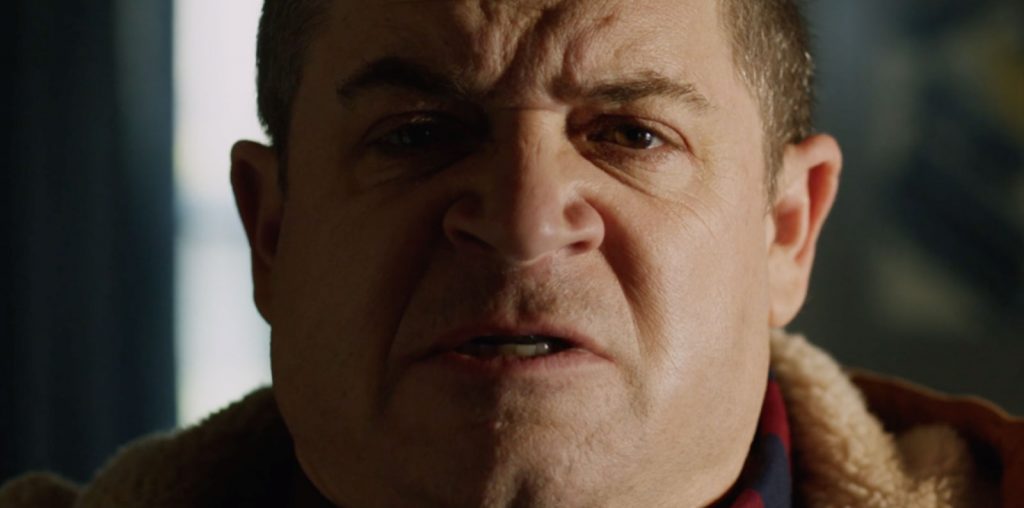
Film history is filled with colorful, self-invented characters-Will Smith’s social climbing con artist in Six Degrees of Separation and the delusional literary giant brought vividly to life by Ian Holm in Joe Gould’s Secret are two of the most memorable examples from recent movies. Hayden Christensen earns a place of honor among this less than honorable bunch with his note perfect portrayal of disgraced New Republic scribe Stephen Glass.
Based on an article by H.G. Bissinger, the feature debut from writer-director Billy Ray offers a transfixing study of the twentysomething’s self destruction. Set in the late 90s against a backdrop of bigtime beltway journalism, Shattered Glass features the Star Wars castmember as the youngest member of the prestigious political magazine’s editorial staff.
An obsequious suck up and pathological self promoter, Glass philosophizes in an opening voice over that most reporters are such jerks, it’s easy to stand out simply by offering a coworker a smile or remembering a birthday. Over time he earns the loyalty of fellow staffers by means of such ploys and their admiration by secretly fabricating all or part of numerous profile-heightening articles.
Ray’s script is loaded with great touches that broadstroke the milieu. Two young reporters bemoan the sorry state of journalism (“If they stoop any lower, there won’t be any difference between Time and People.”) Another, played by Chloe Sevigny, asks a staffmember why she’s adopted a Glass-like style and is told,”They don’t want policy pieces anymore. They want color and humor.”
It’s fascinating to watch the youthful staff of this hugely influential publication-which markets itself as “the in-flight magazine of Air Force One”-as it is charmed by Glass into lowering its standards to make room for stories about such comparatively tabloid matters as the Mike Tyson ear biting incident, young republicans getting drunk and smoking dope at a party convention and, most notoriously, a juvenile hacker who infiltrated the database of a major software manufacturer called Jukt Micronics only to be hired as the company’s security consultant.
It’s this last story which leads to Glass’ undoing. In a sequence that squeezes much of the suspense, excitement and breathless fun of All The President’s Men into little more than a half hour, a reporter (Steve Zahn) for the online magazine Forbes Digital stumbles upon inconsistencies in the piece (the fact, for example, that no company called Jukt Micronics seems to exist), inconsistencies which look more and more troubling the more he looks into them. There are a handful of truly fine, understated performances in the film and Zahn’s is one of them.
As Glass’ editor, Peter (Boys Don’t Cry) Sarsgaard creates a compelling figure of quiet complexity. It’s Christensen’s show though and he’s a revelation, suggesting the effect of parental pressure in a quick, tense exchange, hinting at the reporter’s uncontrollable showmanship with flamboyant staff meeting story pitches and, in the end, looking quite convincingly like someone who has peered into hell and glimpsed a firey pit reserved in his name.
As with many a piece by its subject, the picture is not without holes or loose ends. It might have been nice to learn how such a sociopath and sham rose to the top of the Washington publishing world in the first place but we’re given not a hint. Ray implies that Glass routinely required help from coworkers to complete his stories yet no explanation is offered to account for the success he had freelancing for other magazines such as Harper’s, George and Rolling Stone. The film suggests Glass slipped through the New Republic’s meticulous fact checking net by writing articles for which the only source was his own notes and then goes on to contradict that with examples like the hacker piece and, though the busted journalist is shown lawyering up in a closing scene, the viewer is left to wonder what, if any, legal consequences Glass ever faced.
“Journalism is about persuing the truth,” the young reporter ironically preaches early in the film. The truth in the case of Shattered Glass is that, its few flaws never for a second prevent it from telling one of the most spellbinding stories of the year.
